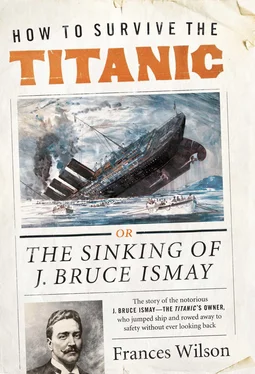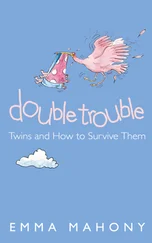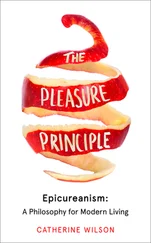Being nouveau riche, Ismay could never be a ‘good sort’ any more than he could have ‘character’. Despite the growing respect shown by ‘old money’ towards trade, coupled with the appreciation that many public school boys would go into business themselves, it was understood that earning a place in the world of commerce was not the same thing as inheriting a place in society. The middle classes could be educated alongside the upper classes, could imbibe their values and even, given the right moral fibre, become gentlemen themselves; but the stigma of trade nonetheless remained. Behaviour was held to be an effect of breeding and every new boy at Harrow was welcomed with the same question: ‘Who’s your father?’ Those with ‘heroic’ fathers, brothers or uncles, men who had excelled in sports or died for their country, were accorded heroic status themselves, while those like Ismay, who came from nowhere, were treated as nobodies.
Starting Harrow in the same term as Ismay was Alexander Arthur, whose father was also a Liverpool shipowner. Perhaps the two new boys were friends — doubtless their fathers were acquainted — but it seems more likely that they sniffed one another out immediately and kept a good distance. Ismay was in an impossible position: the father he feared and respected at home was the object of derision at school. Thomas Ismay was relatively uneducated and spoke with a Cumbrian accent; his particular genius was of no value outside the dockyards. While his parents boasted that Bruce was at a top public school, he was being taught to feel ashamed of his home and of the family business he was expected to inherit. His father, meanwhile, had ambivalent feelings about the expensive education he was providing for his son. He was not putting Bruce through Harrow in order for the boy to gain notions of superiority or have ideas of his own; he was being primed to fill his father’s shoes.
Were it not for his background, Ismay would have blended in with the others; he could never be accused of being either a swot or a wimp. In his history of the family, The Ismay Line, Wilton Oldham suggests that Bruce’s unhappiness at school was due to his having inherited his mother’s ‘shy and sensitive’ nature. Bruce, Oldham writes, learned to put on a ‘facade of brusqueness to avoid appearing over-sensitive’ which ‘often caused people to dislike him, until they got to know him well’. 14But few people, and certainly no one at Harrow, got to know him well; what friendships Ismay formed came later in life. He would have been a target for bullies but it is more likely that, as with many unhappy and conflicted children, Ismay himself was the bully. He had learned from his father the art of intimidation, which he now used in order to build a wall around himself. He would not have been a glamorous bully like Flashman, who terrorised the Rugby of Tom Brown’s Schooldays; he is more likely to have been a silently threatening loner, someone who might slap a bed against the wall with a small boy tucked inside. Pupils kept away from Ismay, and mocked his lack of pedigree only when his back was turned.
For Galsworthy, the public school creed was as follows: ‘I believe in my father, and his father, and his father’s father, the makers and keepers of my estate, and I believe in myself and my son and my son’s son. And I believe that we have made the country and shall keep the country what it is. And I believe in the Public Schools, especially the Public School I was at.’ 15What is striking about Ismay is that he believed neither in his father, nor in his son (who would go to Eton), nor in the public school he was at. Ismay never identified himself as a Harrovian, never nurtured a nostalgia for his alma mater’s rituals, private language or house songs; never saw himself as belonging to a exclusive club of fellows who had more in common with one another than they had with the rest of society. He felt no connection to the school whatsoever.
In Ismay’s same year and house was Horace Vachell, who later wrote a novel about Harrow called The Hill: A Romance of Friendship. Published in 1905 but set in the 1890s, The Hill gives us a good idea of what Harrow was like for someone like Ismay, and it is possible that Vachell’s main character, a bully called Scaife who is the unpopular son of a Liverpool shipping magnate, was a portrait of Ismay himself. Vachell chose as his novel’s epigraph ‘Fellowship is heaven and the lack of it is hell’. The lines, by the pre-Raphelite William Morris, which continue ‘fellowship is life and lack of fellowship is death: and the deeds that ye do upon the earth it is for fellowship’s sake that ye do them’, capture the Edwardian cult of belonging, and the fourteen-year-old Scaife, who does not belong to the heaven of fellowship, is appropriately known as ‘the Demon’. Scaife’s father, in the manner of Tom Brown’s father and of Ismay’s father too, tells him that ‘I’m sending you to Harrow to study, not books nor games, but boys, who will be men when you are a man. And above all, study their weaknesses. Look for the flaws. Teach yourself to recognise at a glance the liar, the humbug, the fool, the egoist, and the mule. Make friends with as many as are likely to help you in after life, and don’t forget that one enemy may inflict a greater injury than twenty friends can repair. Spend money freely; dress well, swim with the tide, not against it.’
Making friends, however, presented difficulties for Scaife because his father pronounced ‘inestimable’ ‘inesteemable’ and ‘connoisseur’ ‘connysure’. Ah, the Scaifes!’ the father of one boy says; A man I know dined with them last week. He reported everything overdone, except the food.’ Socially suspect, Scaife is morally queasy: a boy from his background might have all the credentials for popularity, but he can never be one of us. Scaife was ‘keen at games, popular in his house, clever at work — clever, indeed! Inasmuch as he never achieved more or less than was necessary — generous with his money, handsome and well-mannered, blessed, in fine, with so many gifts of the Gods, yet [he] lacked a soul.’
‘One is reminded sometimes,’ says the languid son of an old family, ‘that the poor Demon is the son of a Liverpool merchant, bred in or about the Docks… One knows that family is not everything, but, other things being equal, it means refinement. The first of the Howards was a swineherd, I dare say, but generations of education, of association with the best, have turned them from swineherds into gentlemen, and it takes generations to do it.’ 16
On board the Titanic was another Harrovian, Tyrell William Cavendish, who was in the same year as Ismay’s youngest brother, Bower. Tyrell Cavendish, who went down with the ship, was described in a letter to the Uttoxeter Advertiser, his local paper, as ‘one of the heroes’ who ‘died as an English noble gentleman, unselfish and heroic to the last’. The paper did not report Ismay’s survival, which was nothing if not a proclamation of selfhood as something distinct from fellowship.
Ismay left Harrow after eighteen months. It is unlikely that Thomas pandered to his son’s unhappiness by removing him from the school; Bruce probably left because Harrow’s work was complete. He could now enter the world a Harrovian and that is what counted. He was sent to complete his education in a tutoring establishment in Dinard, a fashionable French resort frequented by wealthy English and American tourists. Here he learned to play excellent tennis and his tutor, an English clergyman called the Reverend Edwards, predicted that Bruce ‘will… be one of the leading men in the country; he has such a wonderful brain’. His abilities were best suited to the world of business, and when Ismay returned to England he went not to Oxford, as his brother James would do, but back to Liverpool where he started as an apprentice at Ismay, Imrie & Company.
Читать дальше












